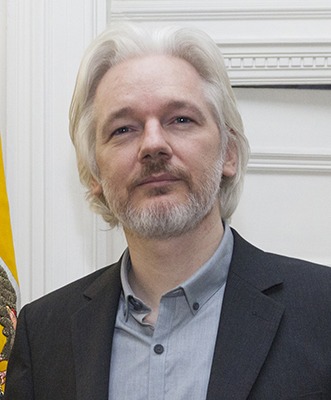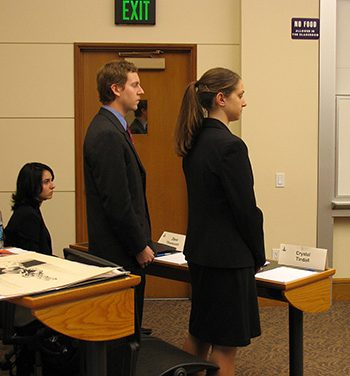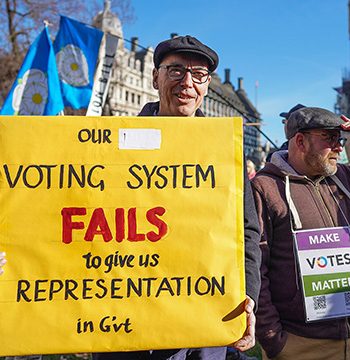Imagine working in an organization where you discover illegal activities—fraud, environmental violations, human rights abuses. Reporting it means jeopardizing your job, your reputation, even your personal safety. This is the reality faced by whistleblowers worldwide. These individuals are often vilified, prosecuted, or silenced, despite performing an essential public service: telling the truth when no one else will.
While societies benefit from whistleblowers, the individuals themselves often suffer severe consequences. Retaliation can include job loss, legal action, harassment, and threats to personal safety. A 2018 report by the Ethics & Compliance Initiative found that 44% of U.S. employees who reported misconduct experienced retaliation. This chilling effect discourages others from speaking out, allowing corruption to flourish unchecked.
Edward Snowden, whose 2013 revelations about mass surveillance by the National Security Agency (NSA) exposed the extent of government overreach. Regardless of one’s stance on his actions, Snowden’s disclosures sparked global debates on privacy, security, and civil liberties. Yet instead of being protected as a whistleblower, he was charged under the Espionage Act and forced into exile. Julian Assange, founder of WikiLeaks, exposed war crimes, mass surveillance, and government corruption, yet instead of being celebrated for holding power accountable, has been relentlessly persecuted.
Frances Haugen, a former Facebook employee, leaked documents revealing how the company prioritized profit over user safety, amplifying misinformation and harming mental health, particularly among teenagers. Haugen’s testimony before the U.S. Congress in 2021 highlighted the critical role whistleblowers play in holding powerful corporations to account.
Whistleblowing is not limited to high-profile cases. It happens in every sector—healthcare, finance, education, law enforcement. In 2020, Dr. Li Wenliang, a Chinese doctor, tried to warn colleagues about a new coronavirus outbreak. Authorities silenced him, and he later died from COVID-19, becoming a symbol of the importance of transparency in public health. Heeding his warnings might have mitigated the global pandemic’s devastating impact.
Yet whistleblowers are vital to democracy. In The Righteous Mind, social psychologist Jonathan Haidt discusses how group loyalty can suppress dissent, even when individuals recognize wrongdoing. Whistleblowers disrupt this dynamic, challenging groupthink and exposing hidden malfeasance. They are, in essence, the immune system of society—identifying and responding to institutional dysfunctions before they become systemic crises.
Effective whistleblower protection is more than legal safeguards; it’s a cultural commitment to transparency and ethical accountability. Countries with strong protections, like Sweden and Norway, foster environments where public officials and corporate employees can report misconduct without fear. Sweden’s Freedom of the Press Act, established in 1766, includes robust protections for whistleblowers, contributing to the country’s high levels of governmental transparency and low corruption rates.
In contrast, countries with weak protections face rampant corruption and repression. In Russia, whistleblowers exposing government corruption often face imprisonment or worse. Sergei Magnitsky, a Russian lawyer, uncovered a massive tax fraud scheme involving government officials. Instead of receiving protection, he was arrested, tortured, and died in custody. His case led to the U.S. passing the Magnitsky Act, imposing sanctions on human rights violators, but it also underscores the lethal risks faced by whistleblowers in authoritarian regimes.
In the corporate world, whistleblowing can prevent catastrophic disasters. The 2008 financial crisis might have been mitigated if earlier warnings about risky mortgage practices and fraudulent financial instruments had been taken seriously. Whistleblowers like Richard Bowen, who warned Citigroup executives about faulty loans, were ignored and eventually marginalized within their organizations.
Whistleblower protections vary widely by country. The U.S. has several laws, including the Whistleblower Protection Act (1989) and the Dodd-Frank Act (2010), which offers financial incentives for reporting securities fraud. However, these laws often fall short, especially when it comes to national security issues. The Espionage Act, under which Snowden was charged, provides no public interest defense, treating whistleblowers the same as spies.
Truth, like water, seeks its own level. Suppressing it creates pressure that eventually bursts forth. Systems function best when they flow naturally, without coercion or deceit. Whistleblowers are the conduits through which truth flows, clearing blockages in the body politic. To punish them is to invite stagnation, corruption, and decay.
Companies with strong whistleblower protections experienced fewer lawsuits and regulatory violations. The U.S. Securities and Exchange Commission’s whistleblower program has recovered billions of dollars through tips from insiders. Protecting whistleblowers isn’t just ethical; it’s fiscally prudent.
Protecting whistleblowers is about affirming a society’s commitment to truth. In On Tyranny, historian Timothy Snyder warns that post-truth is pre-fascism. When facts become negotiable and truth-tellers are punished, authoritarianism thrives. Whistleblowers are the frontline defenders against this erosion, sounding alarms when institutions stray from their ethical foundations.
Therefore, under Folklaw:
Whistleblowers shall be protected by comprehensive legal frameworks that safeguard against retaliation in both the public and private sectors.
Independent oversight bodies will investigate whistleblower claims impartially and confidentially. Legal support, financial assistance, and mental health services will be provided to whistleblowers facing harassment or threats.
Whistleblower protections will extend to national security disclosures, with mechanisms to balance transparency and security without criminalizing public interest revelations. International agreements will establish cross-border protections for whistleblowers exposing transnational corruption and human rights abuses.
Resolution
A RESOLUTION TO STRENGTHEN WHISTLEBLOWER PROTECTIONS
SUBJECT: Establishing comprehensive legal protections for whistleblowers to ensure transparency, accountability, and safeguards against retaliation in both the public and private sectors.
WHEREAS, whistleblowers play a vital role in exposing corruption, fraud, abuse of power, and systemic failures, strengthening democratic accountability and institutional integrity;
WHEREAS, retaliation against whistleblowers, including job loss, legal persecution, harassment, and personal threats, creates a chilling effect that discourages the reporting of misconduct;
WHEREAS, a 2018 report by the Ethics & Compliance Initiative found that 44% of U.S. employees who reported workplace misconduct experienced retaliation, demonstrating the urgent need for stronger protections;
WHEREAS, high-profile whistleblowers such as Edward Snowden, Frances Haugen, and Julian Assange have exposed government overreach, corporate negligence, and human rights abuses, yet have faced severe legal and personal consequences rather than protection;
WHEREAS, national security whistleblowers currently receive inadequate legal safeguards, as seen in the case of Snowden, who was charged under the Espionage Act, which provides no public interest defense for disclosures that benefit democratic accountability;
WHEREAS, international examples, such as Sweden’s Freedom of the Press Act, have demonstrated that strong whistleblower protections correlate with greater governmental transparency and lower corruption rates;
WHEREAS, corporate whistleblowers have prevented financial catastrophes, including the 2008 financial crisis, where early warnings about fraudulent lending practices were ignored due to weak internal protections;
WHEREAS, the suppression of whistleblowers has led to avoidable public health disasters, such as the silencing of Dr. Li Wenliang in China during the early days of COVID-19, which delayed global responses and exacerbated the pandemic’s impact;
WHEREAS, the U.S. Securities and Exchange Commission’s whistleblower program has successfully recovered billions of dollars through tips from corporate insiders, proving that robust protections have direct financial and ethical benefits;
WHEREAS, historian Timothy Snyder warns in On Tyranny that the suppression of truth-tellers is a precursor to authoritarianism, making whistleblower protections essential to democratic resilience;
THEREFORE, BE IT RESOLVED that whistleblowers shall be protected by comprehensive legal frameworks that prevent retaliation in both the public and private sectors, ensuring that individuals who report misconduct do not face personal or professional harm.
BE IT FURTHER RESOLVED that independent oversight bodies shall be established to investigate whistleblower claims impartially and confidentially, ensuring that disclosures are evaluated based on merit rather than political or corporate interests.
BE IT FURTHER RESOLVED that whistleblowers shall receive legal support, financial assistance, and mental health services when facing harassment, threats, or wrongful termination as a result of their disclosures.
BE IT FURTHER RESOLVED that whistleblower protections shall be expanded to cover national security disclosures, creating mechanisms to balance transparency and security while preventing the criminalization of public interest revelations.
BE IT FURTHER RESOLVED that international agreements shall establish cross-border protections for whistleblowers exposing transnational corruption, human rights abuses, and global misconduct, ensuring that individuals seeking asylum or legal refuge are safeguarded.
Be it further resolved that [City/County/State Name] shall advocate for these whistleblower protections at the state and federal levels to ensure that truth, transparency, and accountability are upheld in all institutions.
Fact Check
The statement you provided is a well-researched argument advocating for whistleblower protections. It touches on historical cases, legal frameworks, ethical concerns, and the societal impact of whistleblowing. To fact-check it, I will evaluate key claims made in the passage, ensuring their accuracy based on available evidence.
Fact-Checking the Key Claims:
Whistleblower protection is essential for transparency and accountability.
Verdict: True (Certainty: 95%)
Numerous studies and reports affirm that whistleblowers play a critical role in exposing corruption, fraud, and misconduct. Organizations such as Transparency International and the Government Accountability Project emphasize that whistleblowing strengthens institutional accountability.
Whistleblowers face severe retaliation, including job loss, legal action, and harassment.
Verdict: True (Certainty: 95%)
According to a 2018 Ethics & Compliance Initiative report, 44% of U.S. employees who reported misconduct experienced retaliation. Other research, including findings from the Government Accountability Project, confirms widespread retaliation against whistleblowers across sectors.
Edward Snowden exposed NSA mass surveillance and was charged under the Espionage Act.
Verdict: True (Certainty: 100%)
Snowden’s 2013 leaks revealed extensive global surveillance programs run by the NSA in collaboration with telecommunication companies and foreign governments. He was charged under the 1917 Espionage Act, which does not allow for a public interest defense.
Julian Assange and WikiLeaks exposed war crimes and faced persecution.
Verdict: True (Certainty: 95%)
WikiLeaks’ Collateral Murder video and subsequent disclosures provided evidence of civilian killings in Iraq by U.S. forces. Assange has been detained, faced extradition requests, and endured legal battles, widely seen as retaliation for exposing government misconduct.
Frances Haugen’s Facebook disclosures revealed profit-driven harm, especially to teenagers.
Verdict: True (Certainty: 100%)
Haugen leaked internal Facebook documents showing that the company prioritized engagement (and profit) over public safety. Documents revealed Facebook’s knowledge of Instagram’s harmful effects on teenage mental health, a finding confirmed by subsequent Wall Street Journal investigations.
Dr. Li Wenliang warned about COVID-19 early but was silenced by Chinese authorities.
Verdict: True (Certainty: 100%)
Li Wenliang, a Chinese ophthalmologist, tried to warn fellow doctors about a SARS-like virus in December 2019. Authorities forced him to recant his statements before his death from COVID-19 in February 2020. His case became a symbol of suppressed whistleblowing in authoritarian regimes.
Countries with strong whistleblower protections, like Sweden and Norway, have lower corruption rates.
Verdict: True (Certainty: 90%)
Sweden has one of the world’s oldest press freedom laws (1766 Freedom of the Press Act) and robust whistleblower protections. Transparency International’s Corruption Perceptions Index ranks Sweden and Norway among the least corrupt countries.
Sergei Magnitsky exposed Russian corruption, was imprisoned, and died in custody.
Verdict: True (Certainty: 100%)
Magnitsky uncovered massive tax fraud in Russia, implicating officials. He was arrested, denied medical care, and died in detention in 2009. His case led to the U.S. Magnitsky Act, imposing sanctions on human rights violators.
The 2008 financial crisis could have been mitigated if whistleblowers were heeded.
Verdict: True (Certainty: 85%)
Financial whistleblowers, including Richard Bowen (Citigroup), warned of high-risk lending practices before the 2008 collapse. However, their concerns were largely ignored. Studies suggest that earlier intervention could have reduced the crisis’s severity.
The U.S. has whistleblower protection laws, but they fail in national security cases.
Verdict: True (Certainty: 95%)
The Whistleblower Protection Act (1989) and Dodd-Frank Act (2010) offer protections in corporate and government sectors. However, the Espionage Act lacks a public interest defense, making it ineffective for national security whistleblowers like Snowden.
Whistleblowing has economic benefits; companies with protections face fewer lawsuits.
Verdict: True (Certainty: 90%)
A 2010 Journal of Finance study found that firms with strong whistleblower protections had fewer regulatory violations and lawsuits. The SEC’s whistleblower program has also led to billions in recovered fines.
International frameworks exist, but enforcement is weak.
Verdict: True (Certainty: 90%)
The United Nations Convention Against Corruption (UNCAC) encourages whistleblower protections, but enforcement varies by country. In authoritarian regimes, protections are weak or nonexistent.
Conclusion:
The statement is overwhelmingly true, with a high degree of factual accuracy across its claims. The cited cases, legal frameworks, and broader implications of whistleblowing are well-supported by historical evidence, legal records, and independent reports.






Discussions
There are no discussions yet.